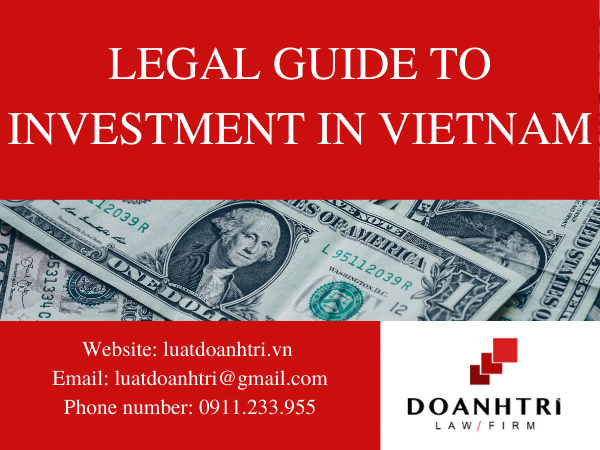Investment consulting
BUSINESS REGISTRATION IN HANOI
Vietnam is increasingly becoming a hot spot for foreign investors in general as well as domestic investors in particular. Central cities such as Hanoi, Ho Chi Minh City, Da Nang, ... are the economic locomotives of the country, with high population density, the demand for jobs poses a big problem for many domestic businesses, however, that problem has been alleviated somewhat with foreign investors setting up businesses in Vietnam as well as in big cities. So, how can foreign investors set up business in Vietnam? Let’s unravel this problem with Doanh Tri Law through the following article!
BENEFITS OF REGISTERING BUSINESS IN VIETNAM
To promote the development of new companies, Vietnam has enacted preferential financial policies. The following article will discuss the "Benefits of Registering business in Vietnam."
STEP BY STEP SETUP COMPANY IN VIETNAM
Due to the development of the Vietnamese economy during the COVID-19 epidemic, more and more foreign investors are attracted by the increasingly strong growth of the Vietnamese economy with favorable economic geographic location, highly skilled human resources, abundant mineral resources, and appropriate and inexpensive investment costs as well as a potential market. Foreign investors usually invest in Vietnam by setting up business corporations, representative offices, or branch offices. Nowadays investors would choose to set up a new business instead of choosing branches or representative offices so that they can have better supervision over the business as well as being independent in a specific new line of business. So what are the legal procedures for setting up a company in Vietnam? Let’s unravel the process with Doanh Tri Law through the following article.
EXPERIENCE IN DOING BUSINESS: HOW TO REGISTER A COMPANY IN VIETNAM
With the ceaseless development and the astounding economic growth during the stage of the COVID-19 pandemic, foreign investors are drawn to Vietnam for its cheap labor resources with high workmanship, beneficial investment policies, favorable geographical location, and being a member of many international treaties. Having noticed these valuable advantages of the Vietnam market, more and more foreign investors are pouring money into Vietnam by investing in the establishment of a business entity. But forming a company in Vietnam, foreign investors must carry out the proper procedures regulated according to the laws of Vietnam in order to establish a company. So what are these legal procedures and how are they regulated? Let’s unravel these procedures through the following article with Doanh Tri Law!
LEGAL GUIDE TO INVESTMENT IN VIETNAM
Statistics show that over 90% of the wealthy / financially free have more than one source of income. In contrast, people with a lower quality of life, with more difficulty, have only one source of income. Having multiple sources of income (while maintaining your primary job) can be seen as a factor in your financial success.One of the reasons that the rich get richer, the poor are getting poorer, and the middle class is often indebted is how they generate different sources of income. If you put your savings to sleep in your bank account, you will definitely never receive more money than you save. In contrast, the wealthy generate passive income from investments in financial markets in a deliberate way, and they often invest very early. Investment in Vietnam is usually not very complicated if investors have already had experience in this field, especially for those who are domestic investors. As for foreign investors who wish to invest in Vietnam, the procedures are a bit more intricate. So what legal procedures need to be carried out by investors and what should they keep in mind when they want to invest in something in Vietnam. Let’s unravel the complex legal procedures of investment in Vietnam through the following article with Doanh Tri Law.
FOREIGN DIRECT INVESTMENT IN VIET NAM
After more than three decades of opening up the market, Vietnam has achieved tremendous amounts of success in attracting foreign direct investment (FDI). FDI has made a large contribution to economic growth (GDP), investment capital, import-export, local budget revenue and job creation. Vietnam has a stable economic growth rate over the years and is continuing to progress. Moreover, it has many advantages in terms of labor, so it attracts a relatively high number of foreign investors. Besides, the policy of integration and development is also increasingly focused and promoted by the government. So, what types of foreign direct investment in Vietnam include, and what are the requirements? Let’s unravel foreign direct investment in Vietnam with Doanh Tri Law through the following article.









.png)
.png)



